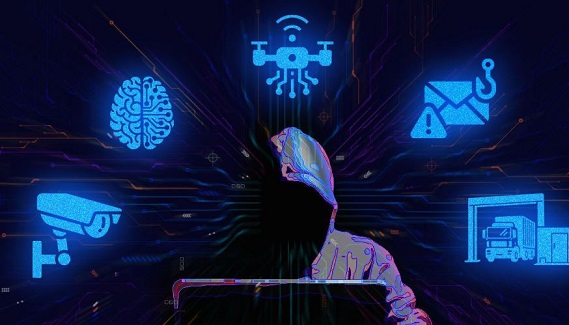Stories you may like
Software Technician
Software technicians are IT technicians who install, maintain, and troubleshoot software applications and systems. With strong problem-solving skills, technical knowledge, and effective communication abilities, they work to ensure that software runs smoothly and efficiently, often serving as a bridge between users and software developers.
Duties and Responsibilities
The work of the software technician is focused on keeping software reliable, user-friendly, and aligned with organizational requirements. It entails:
- Technical Support and Troubleshooting – Diagnose and resolve software issues such as bugs, crashes, or errors. Provide technical support to end-users, answering questions and solving problems. Address software compatibility issues with hardware or operating systems.
- Software Installation and Configuration – Install and set up software applications on devices and systems. Configure software settings to meet user or organizational needs. Ensure proper integration with existing hardware and software.
- Maintenance and Updates – Apply software patches, updates, and security enhancements regularly. Monitor system performance and perform preventative maintenance to avoid issues. Identify and address software vulnerabilities.
- Testing and Quality Assurance – Test software for bugs, performance, and compatibility before deployment. Collaborate with developers to address and fix identified issues. Ensure software meets technical and functional requirements.
- User Support and Training – Provide guidance and training to users on how to use software effectively. Create user manuals, FAQs, or other documentation for easy reference. Respond to feedback and adjust configurations or processes as needed.
- Collaboration and Communication – Work with developers to report bugs and suggest system improvements. Liaise with IT teams to ensure seamless software-hardware integration. Communicate with management or stakeholders about technical issues and solutions.
- System Monitoring and Optimization – Monitor the performance of software applications and identify bottlenecks. Recommend enhancements or new software tools to improve efficiency. Ensure compliance with organizational or regulatory standards for software use.
- Data Backup and Recovery Support – Assist in data recovery processes when software-related failures occur. Implement and maintain backup systems to prevent cyber threats and data loss.
How to become a Software Technician
Becoming a software technician typically involves a mix of education, skills development, and hands-on experience. Here’s an overview of the pathway to the career:
High School Diploma or GED
The minimum education required for entry-level positions is typically a high school diploma or equivalent. Focus on subjects like mathematics, computer science, and information technology, and on developing problem-solving skills.
Associate Degree (Optional, but Helpful)
An associate degree can provide foundational knowledge and a competitive edge over other candidates. Common fields of study include computer software engineering, computer science, information technology, or network systems administration.
Bachelor’s Degree (For Advanced Roles)
While a bachelor's degree is not always required to work in in the software field, it can be beneficial for higher-level positions such as systems administrator, database administrator, or roles in specialized areas like networking or cloud computing. It provides deeper knowledge of programming, systems architecture, and software development.
In addition to the disciplines cited above, aspiring software technicians who pursue a bachelor’s degree may also consider these majors: management information systems, data science, cybersecurity.
Hands-On Experience
Practical experience is essential to becoming a skilled software technician Look for internships or part-time jobs in IT support or related roles. Offer your services to local organizations or non-profits to build your portfolio. Gain experience by solving software issues for friends, family, or small businesses.
On-the-Job Experience
Many software technicians begin their careers in entry-level IT roles such as help desk technician, IT support specialist, or junior systems administrator. These roles provide practical experience in troubleshooting and user support.
Develop Key Skills
Successful software technicians combine technical abilities with soft skills. Gain knowledge in these critical areas:
- Operating Systems – Learn about Windows, macOS, Linux, and other operating systems.
- Software Tools – Familiarize yourself with troubleshooting software, databases, and productivity applications.
- Programming Basics – Understand programming languages like Python, Java, or C++.
- Networking – Learn about network protocols, VPNs, and troubleshooting connectivity issues.
- Problem-Solving – Develop analytical skills to diagnose and resolve software issues.
- Communication Skills – These skills are key to explaining technical issues to non-technical users.
- Customer Service – Patience and professionalism are essential when interacting with clients or team members.
- Teamwork – This is key to collaborating with developers, IT staff, and other technicians.
Certifications
There are several certifications available for software technicians that can help demonstrate expertise in specific areas of software support, troubleshooting, and maintenance. The following popular credentials can significantly enhance qualifications and improve job prospects:
- CompTIA A+ Certification – This is the most widely recognized certification for entry-level IT technicians. Offered by Comp TIA (Computer Technology Industry Association), it covers a broad range of topics related to computer hardware installation and configuration, operating systems, software, networking, security basics, and troubleshooting and diagnostics.
- CompTIA Network+ Certification – Also offered by Comp TIA, this is one of the most popular, globally recognized entry-level certifications for technicians who work with networked software and systems. Topics covered include OSI model, TCP/IP, routing, switching, network security, wireless technologies, network management, and troubleshooting.
- Microsoft Certified: Azure Fundamentals – Offered by Microsoft, this certification covers cloud computing with Microsoft Azure, including storage and data recovery in cloud environments. Relevant for software techs working with cloud-based software and services, this certification program teaches basic cloud concepts, services, and solutions using Azure.
- Cisco Certified Technician (CCT) – Ideal for those interested in working with Cisco hardware, software solutions, and networking equipment, this certification covers Cisco networking devices, routing and switching concepts, and troubleshooting Cisco equipment and systems.
- Certified Information Systems Security Professional (CISSP) – The CISSP program, a more advanced program offered by ISC2 (The International Information System Security Certification Consortium), is focused on cybersecurity and data protection. It provides in-depth training in security policies, risk management, security architecture and engineering, security operations, and legal aspects of data security.
- Google Associate Cloud Engineer Certification – This credential focuses on Google Cloud Platform and software solutions running on Google Cloud. Targeted at technicians managing cloud-based software and infrastructure, it covers deployment, management, and troubleshooting of software in Google Cloud environments.
- AWS Certified Solutions Architect Associate – The focus of this credential is cloud architecture on Amazon Web Services (AWS). Ideal for technicians working with cloud-based software solutions, the certification program teaches how to design and manage scalable, secure software solutions on AWS.
- ITIL 4 Foundation Certification –The ITIL (IT Infrastructure Library) certification is valuable for those working in IT service management and within larger IT teams. It focuses on best practices for managing IT services, covering service management lifecycle, service desk and support processes, and incident management and problem-solving. The credential is relevant for technicians working in environments where software management and incident resolution are essential.
- Red Hat Certified System Administrator (RHCSA) – This certification focuses on Linux system administration, which is important for technicians supporting Linux systems and open-source software. It covers installing, configuring, and troubleshooting Linux systems.
- VMware Certified Professional (VCP) – This certification is relevant for technicians working in virtualized environments supporting software systems, focusing on VMware software. Topics covered include virtualization concepts, VMware software installation and configuration, and virtual desktop infrastructure (VDI).
- Apple Certified Support Professional (ACSP) – This certification is specific to Apple devices and macOS software. Topics addressed in the certification program include macOS installation, configuration, and troubleshooting, system security and user management, and diagnostics for Apple devices.
- Certified Software Tester (CSTE) – This certification is targeted at those specializing in software quality assurance and testing. It is offered by various institutes, including the Quality Assurance Institute (QAI).
- Certified Ethical Hacker (CEH) – Offered by EC-Council, the CEH certification focuses on ethical hacking and penetration testing techniques. While it is more oriented toward security professionals, it can be helpful for software technicians who need to understand data breaches, ransomware, and other security incidents to protect software from vulnerabilities.
Continue Learning and Consider Specialization
The field of computer software evolves rapidly with new technologies, tools, and protocols. As a software technician, you'll need to keep learning through self-study, online tutorials, or courses on platforms like Udemy, Coursera, or edX.
As you gain knowledge and experience, you may want to specialize in areas like software security, cloud computing, or data management. For a complete list of specializations in the field, please see the What does a Software Technician do? section in the career overview.
Freelancing / Contract Work
Some technicians choose to operate as independent contractors, offering their services to businesses or individual clients who need help with software installations, troubleshooting, and upgrades.
Professional Organizations
In addition to the certifying bodies referenced above in the Certifications section, the following organizations also support the software tech community:
- Software Engineering Institute (SEI) – SEI focuses on software engineering and systems development, particularly in complex environments. It researches complex software engineering, cybersecurity, and AI engineering problems; creates and tests innovative technologies; and transitions maturing solutions into practice.
- Association for Software Testing (AST) – AST is an organization for professional software testers, creating community, boosting careers, and promoting the science and craft of software quality assurance and testing.
- Information Systems Security Association (ISSA) – ISSA is the community of choice for international cybersecurity professionals dedicated to advancing individual growth, managing technology risk, and protecting critical information and infrastructure.
- Association for Computing Machinery (ACM) – ACM is a well-known global professional organization for computing professionals. It offers resources and events that cover a wide range of topics, including software technology and IT.
- International Association of IT Professionals (IAITP) – IAITP unites talented and outstanding individuals who have achieved significant success in their professional IT careers. It provides training, career resources, networking events, and job boards.
- Linux Professional Institute (LPI) – LPI provides resources concerning Linux-based systems and software, which are relevant for software technicians supporting Linux environments.
Workplace of a Software Technician
Software technicians can work for a wide range of organizations and industries that rely on software systems to operate efficiently. These are among their most common employers:
- IT Service Providers and Tech Companies – Software technicians are employed by firms that develop software solutions (e.g., Microsoft, Oracle, SAP), companies specializing in outsourced IT and software support, and organizations offering cloud-based software and platforms (e.g., AWS, Google Cloud, Azure).
- Corporate IT Departments – Technicians are hired by businesses with in-house IT teams to support enterprise software, databases, and networks. Small and medium-sized enterprises (SMEs) rely on software technicians for day-to-day technical support and software maintenance.
- Government Agencies and Public Sector – Municipal, state, and federal organizations engage software technicians to manage large-scale software systems for administration, public services, and security.
- Healthcare Organizations – Hospitals, clinics, and medical facilities employ software technicians to manage healthcare applications and diagnostic tools.
- Educational Institutions – Schools, universities, and training centers need technicians to maintain learning management systems (LMS) and other educational software.
- Manufacturing and Engineering Firms – Companies using CAD (computer-aided design), CAM (computer-aided manufacturing), or other specialized software for design, automation, and production processes hire software technicians to oversee the integration and management of these systems.
- Financial Services – Banks, insurance companies, and investment firms rely on software technicians to maintain financial management tools, trading platforms, and compliance software.
- Retail and E-Commerce – Software technicians play a vital role in businesses operating point-of-sale (POS) systems, inventory management software, and e-commerce platforms.
- Media and Entertainment – Game development studios, film production companies, and multimedia firms using gaming engines, editing tools, or animation software are also employers of software technicians.
- Telecommunications Companies – Organizations managing communication systems, network software, and customer support platforms commonly employ software technicians.
- Specialized Industries – The aerospace and defense industries need software technicians to support mission-critical software for operations and safety. The transportation and logistics sector hires techs to manage software for fleet tracking, route optimization, and industry management. Energy and utility entities require software technicians to support software for grid management, energy distribution, or monitoring systems.
- Non-Profit Organizations – NGOs and non-profit entities that use specific software for fundraising, donor management, or outreach programs typically have a software technician on staff or on contract.
- Freelance and Contract Roles – Software technicians may work independently or as part of a consulting firm, offering support to multiple clients on a project or contract basis.
Many software technicians work in office environments, typically equipped with computers, servers, and other networking equipment necessary for diagnosing and resolving software issues. In addition to traditional office settings, they may work in remote or hybrid environments, as much of their work can be done online. This allows for flexible work arrangements, where technicians can troubleshoot software issues, install updates, and provide technical support from home or offsite locations. Depending on the role, a software technician’s workplace may also include data centers, labs, or on-site locations, particularly for those managing hardware-integrated software or enterprise IT systems. The job often requires collaboration with colleagues across different departments, meaning teamwork and communication skills are just as important as technical expertise.
In some industries, such as healthcare or financial services, technicians may work in high-pressure environments, ensuring mission-critical systems remain operational around the clock.
Career Outlook of a Software Technician
Job Demand
- High demand globally as every business relies on software systems.
- Entry-level opportunities are strong, especially in IT services, software companies, healthcare, finance, telecom, and government sectors .
- Career path can evolve into Software Engineer, Systems Analyst, IT Support Specialist, or Network Administrator with experience and further training.
Work Environment
- Offices, IT help desks, or remote support roles.
- Often involves shift work if supporting 24/7 systems.
Salary of a Software Technician
Global Average
- United States: $40,000 – $65,000 per year (entry to mid-level).
- UK: £22,000 – £35,000 per year.
- Canada: CAD 42,000 – CAD 60,000 per year.
- Australia: AUD 50,000 – AUD 70,000 per year.
India
- Entry-level: ₹2.2 LPA – ₹3.5 LPA.
- Mid-level (3–5 yrs exp.): ₹4 LPA – ₹6 LPA.
- With certifications (Microsoft, Cisco, CompTIA): up to ₹8 LPA+.
Growth Potential
- With additional skills (cloud computing, cybersecurity, DevOps), technicians can move into higher-paying IT specialist or engineer roles .
- Demand is expected to grow steadily with the rise of digital transformation and cloud-based systems worldwide.







User's Comments
No comments there.